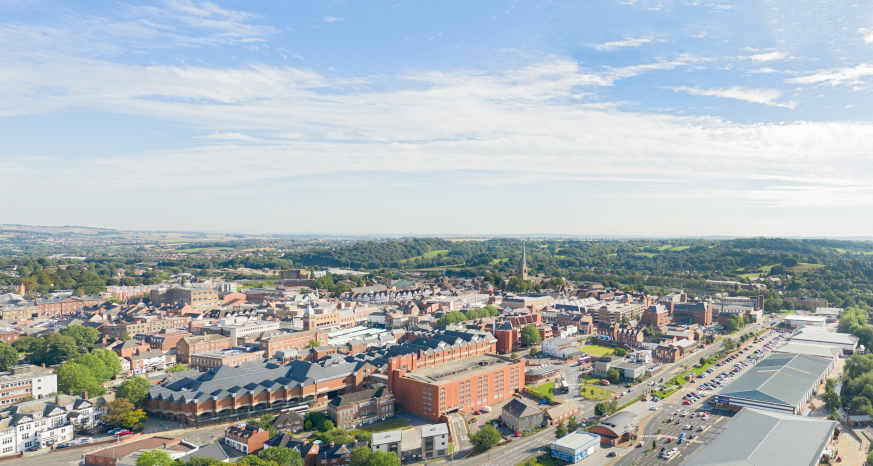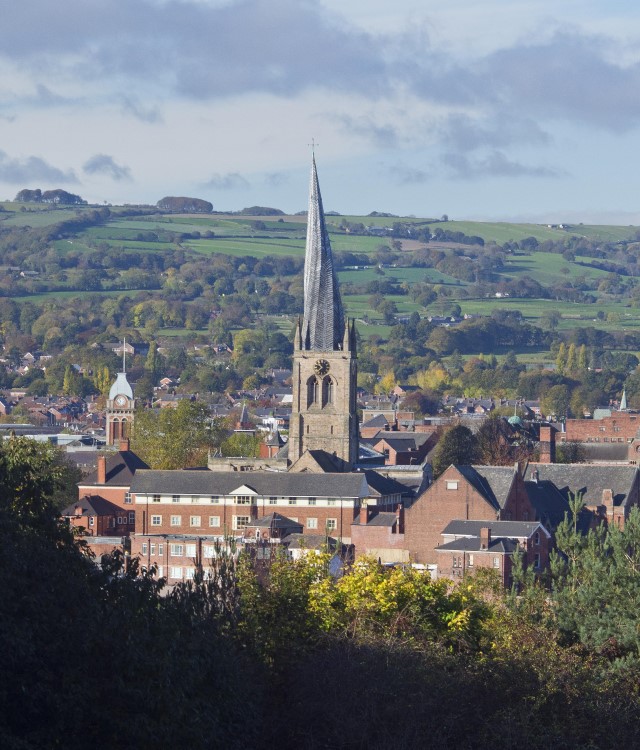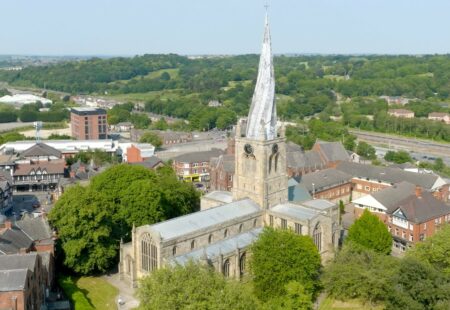Councils update on proposed devolution deal for East Midlands
Four councils across Derbyshire and Nottinghamshire are due to decide whether to formally agree that a public consultation about the devolution deal proposal for the East Midlands should go ahead.
Nottingham City Council is the first to discuss the deal at its Full Council meeting on Monday 31 October 2022, followed by Derbyshire County Council and Derby City Council on 2 November 2022 and Nottinghamshire County Council on 4 November 2022.
The leaders of each of the 4 councils signed up to work on a devolution deal on 30 August 2022, after the government offered the region a package of new powers and funding worth £1.14 billion. Since August, the councils have been working on agreeing a more detailed proposal, which includes more information about how devolution would work in our area.
These proposals will be discussed for formal agreement at key council meetings and if approved, a full consultation would follow – giving residents, businesses and other organisations the chance to have their say on the plans for a devolution deal, which would see a new regional mayor and new type of combined authority created for the area from 2024.
The deal would provide the region with a guaranteed income stream of £38 million per year over a 30-year period, and would cover around 2.2 million people, making it one of the biggest in the country.
The 4 leaders, Barry Lewis, Leader of Derbyshire County Council, Ben Bradley MP, Leader of Nottinghamshire County Council, Chris Poulter, Leader of Derby City Council, and David Mellen, Leader of Nottingham City Council, said in a joint statement:
“Formal agreement by each council to go ahead with a consultation is the next step towards securing a devolution deal. It is about us getting a better deal for our area and getting a fairer share for both counties and cities. It would mean more funding for our region, and the opportunity to have more meaningful decisions made here, near the people they affect, rather than in London, so they can be better tailored to local needs.
“We don’t want to miss out on the advantages that devolution would bring, which other parts of the country have already benefited from. We’ve seen how devolution has given other areas more influence, a bigger presence, and helped them make the most of their strengths.
“We want to make the most of every opportunity, and of every penny, that this deal would bring in. It could make a real difference to people’s lives. More and better jobs, more investment, economic growth, better transport, housing, skills training, an improved greener and more sustainable environment. These are the things we all want to see, as we work together for a better future for the East Midlands.
“We often haven’t had the same level of funding or influence as other areas, and this is a big chance to turn that around and help us live up to our potential as a region.”
If the devolution deal goes ahead, it would create the first of a new type of combined authority, which requires new legislation from central government. As well as the £1.14 billion, it would include an extra £16 million for new homes on brownfield land and control over a range of budgets, like the adult education budget, which could be better tailored to the needs of people in our communities.
The devolution deal on the table is a level 3 deal, which offers the most local powers and funding. It would mean a new elected regional mayor, like those which already exist in other areas, who would represent both cities and counties. The role of the mayor would be to look at major issues affecting the whole region, give the area a bigger voice, and take advantage of local knowledge and expertise.
The deal means that a future mayor and combined authority could:
- work towards Net Zero and cleaner air with new low carbon homes, retrofit existing houses with external wall insulation, promote the use of renewable energy, and protect and enhance green spaces, like areas for wildlife and green verges
- build on the region’s existing knowledge and expertise in green technology and promote the growth of a future low carbon economy by investing in related skills training at colleges and other training facilities
- set up and co-ordinate smart integrated ticketing and enhanced concessionary fares schemes
- work with Homes England to build more affordable homes, by using new powers to buy land and housing (with district and borough council consent)
- enhance the region’s economy by developing new commercial space to maximise opportunities
- work with national government on initiatives to address homelessness, domestic abuse, community safety, social mobility and support for young people
- take advantage of economies of scale by using combined and devolved budgets to deliver more value for taxpayers and more cost-efficient services
The 4 councils sent initial proposals to negotiate a combined devolution deal in March, after being named as pathfinder areas by the government in February and then being invited to apply for a devolution deal.
The councils have been working with the government to develop details of the deal, alongside discussions with district and borough councils, businesses and other stakeholders.
If the devolution deal is formally approved, the government would pass legislation bringing a new mayoral county combined authority for the east midlands into existence. The first election for a regional mayor for Derbyshire, Nottinghamshire, Derby and Nottingham would be in May 2024.
The regional mayor would lead the new combined authority, which would also include representatives from local councils, with decision making powers and resources moving from London to the East Midlands. Local businesses would also have a voice, as well as other organisations.
The devolution deal would not mean scrapping or merging local councils, which would all continue to exist as they do now and would still be responsible for most public services in the area. The mayor and combined authority would instead focus on wider issues like transport, regeneration, and employment across both cities and counties.




